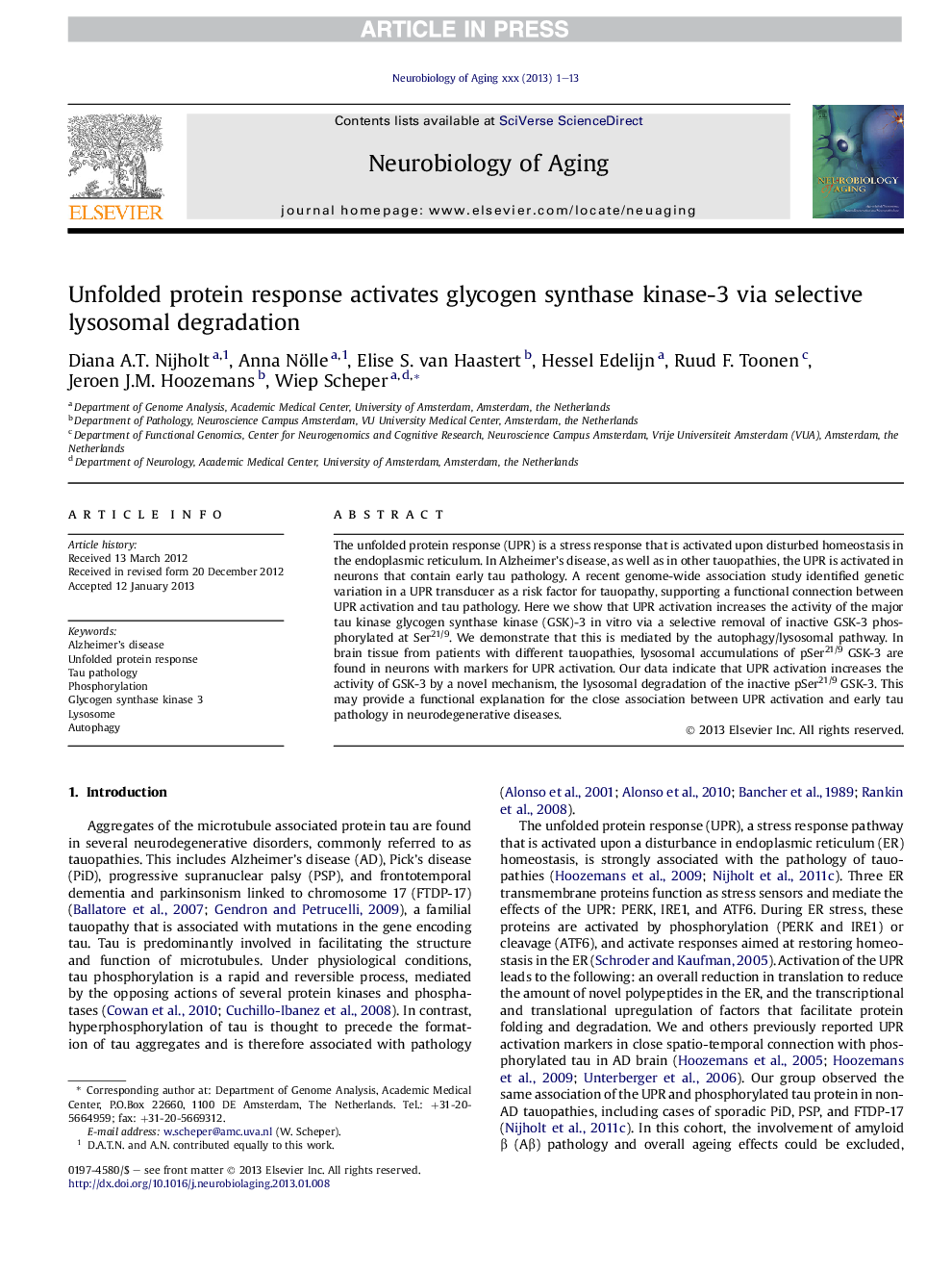| Article ID | Journal | Published Year | Pages | File Type |
|---|---|---|---|---|
| 6807265 | Neurobiology of Aging | 2013 | 13 Pages |
Abstract
The unfolded protein response (UPR) is a stress response that is activated upon disturbed homeostasis in the endoplasmic reticulum. In Alzheimer's disease, as well as in other tauopathies, the UPR is activated in neurons that contain early tau pathology. A recent genome-wide association study identified genetic variation in a UPR transducer as a risk factor for tauopathy, supporting a functional connection between UPR activation and tau pathology. Here we show that UPR activation increases the activity of the major tau kinase glycogen synthase kinase (GSK)-3 in vitro via a selective removal of inactive GSK-3 phosphorylated at Ser21/9. We demonstrate that this is mediated by the autophagy/lysosomal pathway. In brain tissue from patients with different tauopathies, lysosomal accumulations of pSer21/9 GSK-3 are found in neurons with markers for UPR activation. Our data indicate that UPR activation increases the activity of GSK-3 by a novel mechanism, the lysosomal degradation of the inactive pSer21/9 GSK-3. This may provide a functional explanation for the close association between UPR activation and early tau pathology in neurodegenerative diseases.
Keywords
Related Topics
Life Sciences
Biochemistry, Genetics and Molecular Biology
Ageing
Authors
Diana A.T. Nijholt, Anna Nölle, Elise S. van Haastert, Hessel Edelijn, Ruud F. Toonen, Jeroen J.M. Hoozemans, Wiep Scheper,
